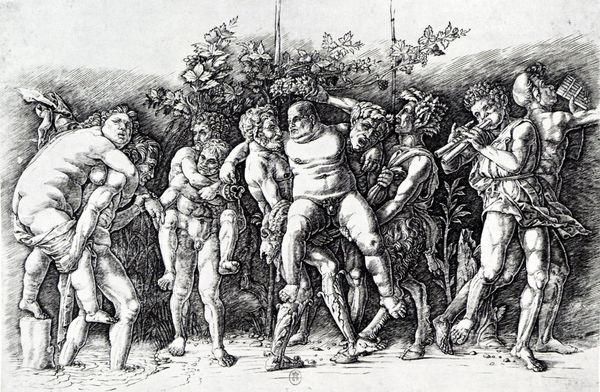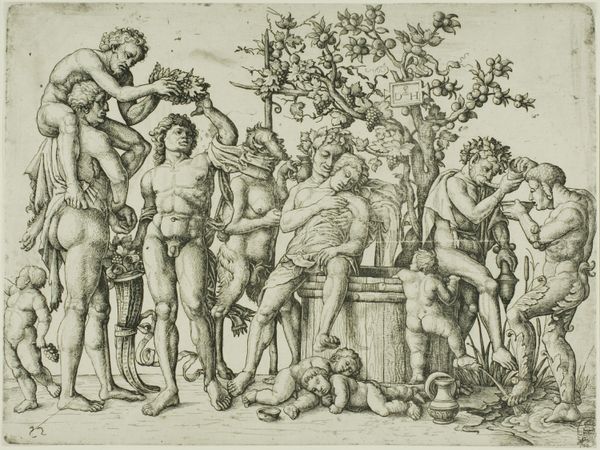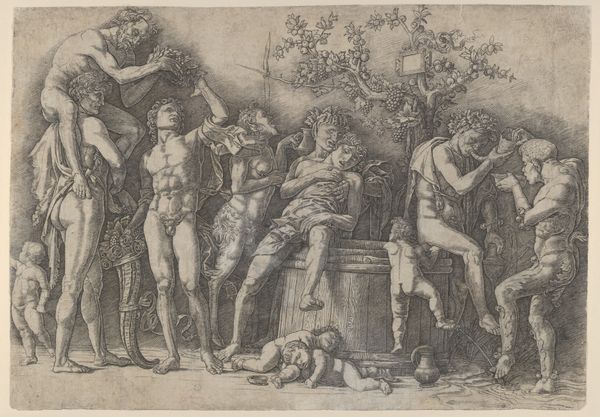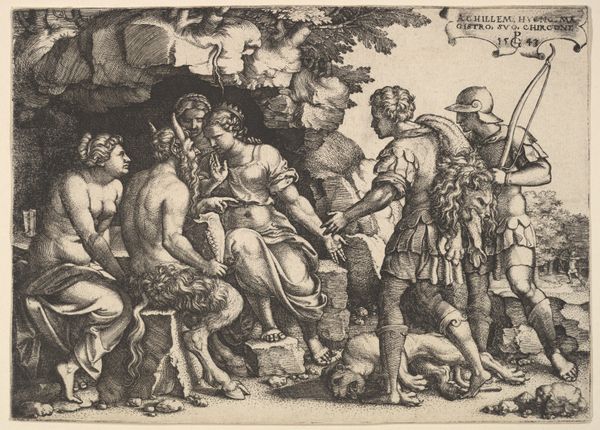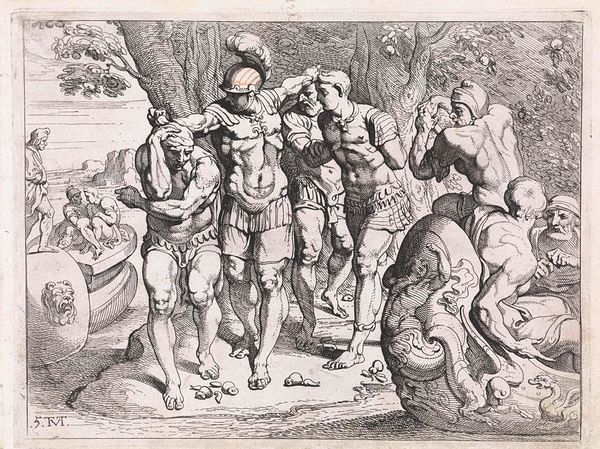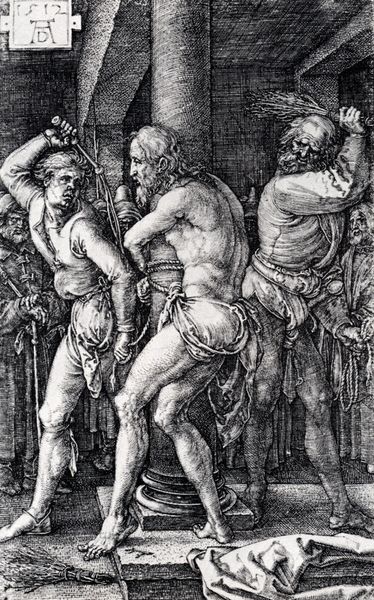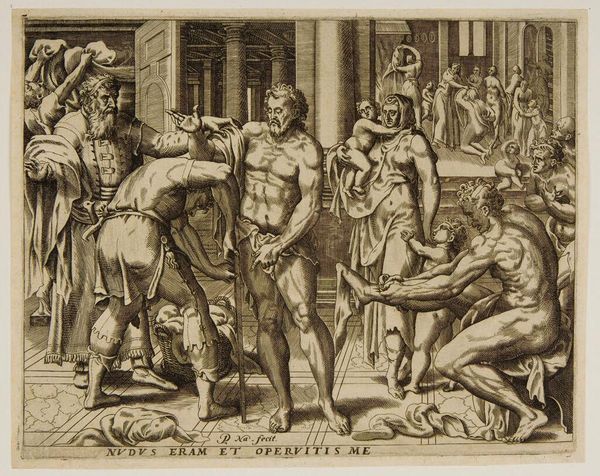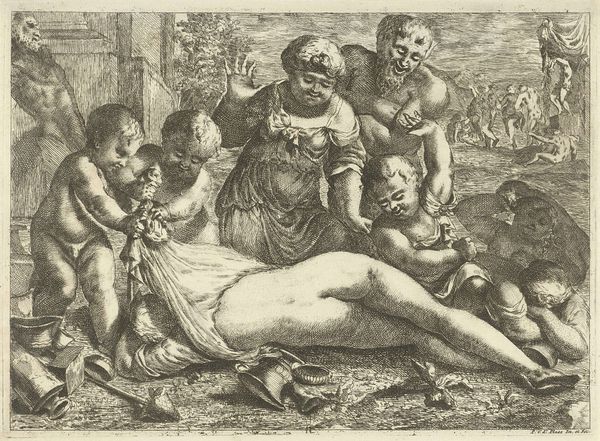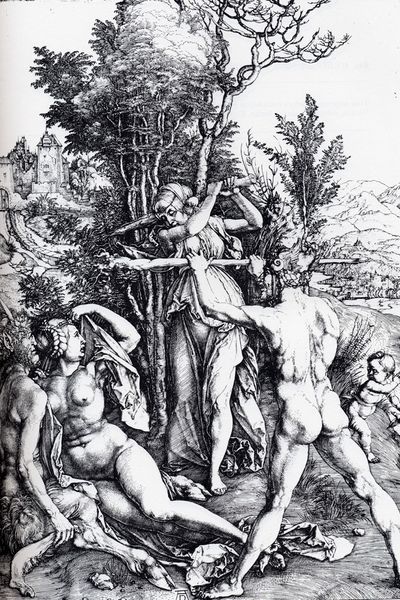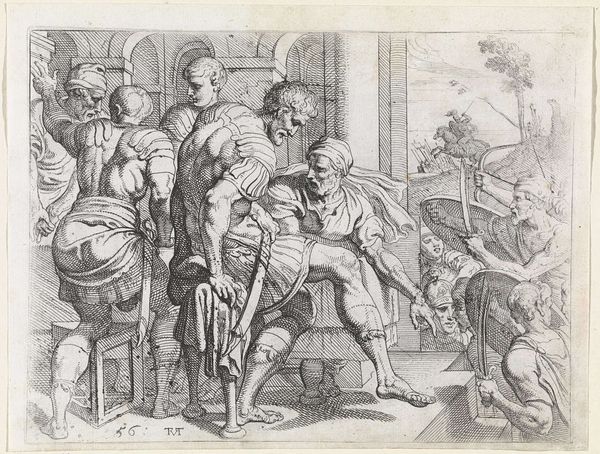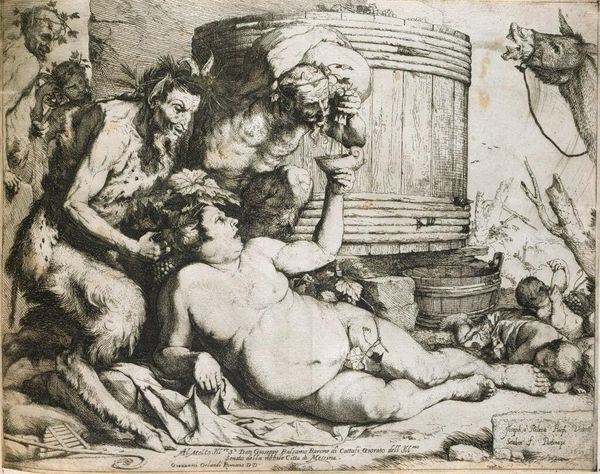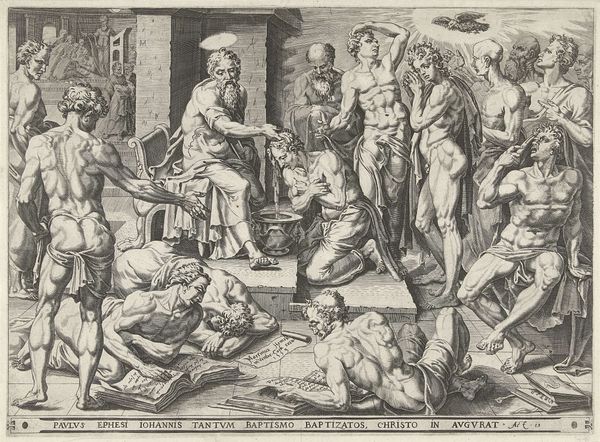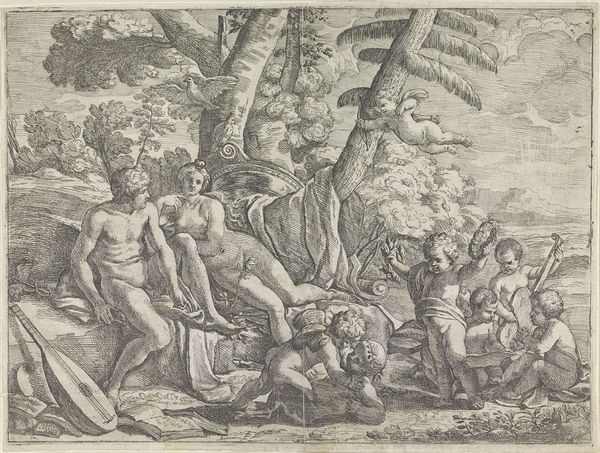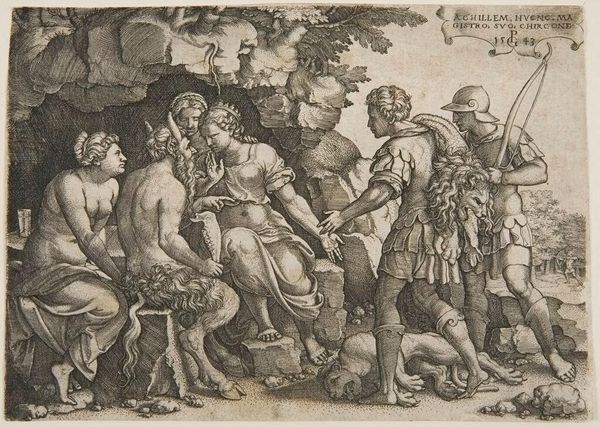
drawing, print, engraving
#
portrait
#
drawing
# print
#
sculpture
#
charcoal drawing
#
figuration
#
form
#
charcoal art
#
roman-mythology
#
group-portraits
#
mythology
#
human
#
line
#
history-painting
#
charcoal
#
italian-renaissance
#
engraving
Copyright: Public domain
Andrea Mantegna made this engraving, called ‘Bacchanalia with a Wine Vat’, in Italy, around 1500. It depicts a scene of drunken revelry from classical mythology, filled with gods, satyrs, and putti cavorting around a vat overflowing with wine. The image creates meaning through its references to ancient Greek and Roman culture. Mantegna was deeply interested in classical antiquity, and his work reflects the renewed interest in classical learning that characterized the Renaissance in Europe. The figures are idealized and muscular, and they are arranged in a dynamic composition that recalls ancient friezes and sculptures. Wine is, of course, symbolic of earthly pleasures, and the bacchanal represented the release of inhibitions. But it could also point to the Christian sacrament of the Eucharist. By studying the history of art institutions and the social context in which art is made, we can gain a deeper understanding of its meaning and significance. Research resources such as historical documents, letters, and diaries can provide valuable insights into the artist's intentions and the reception of the artwork by its contemporary audience.
Comments
No comments
Be the first to comment and join the conversation on the ultimate creative platform.
